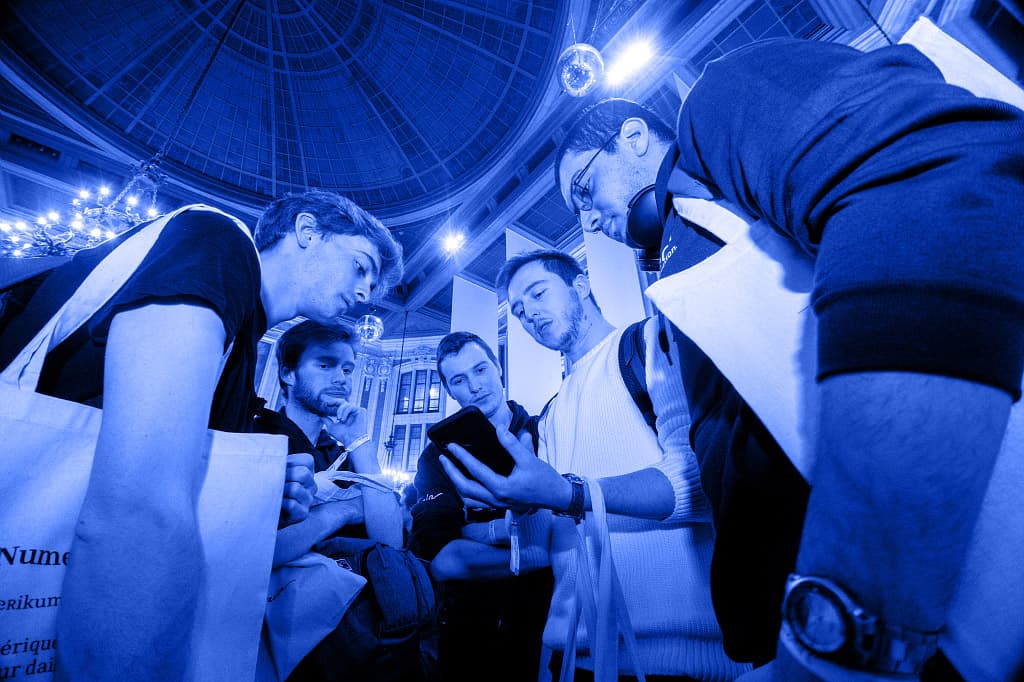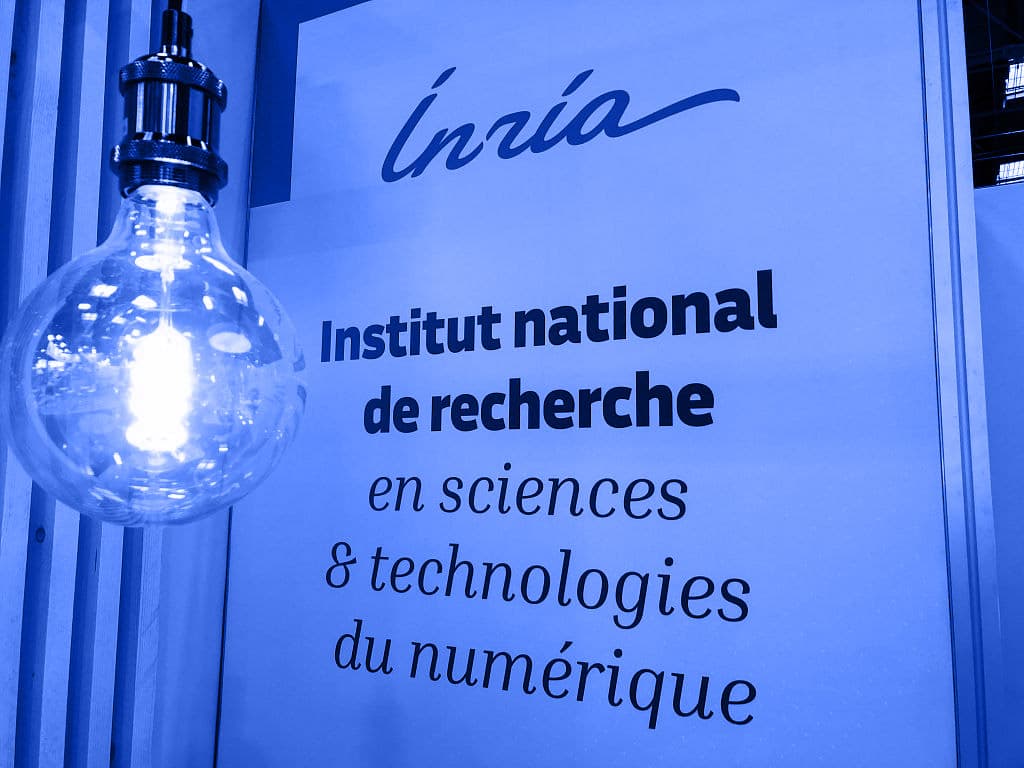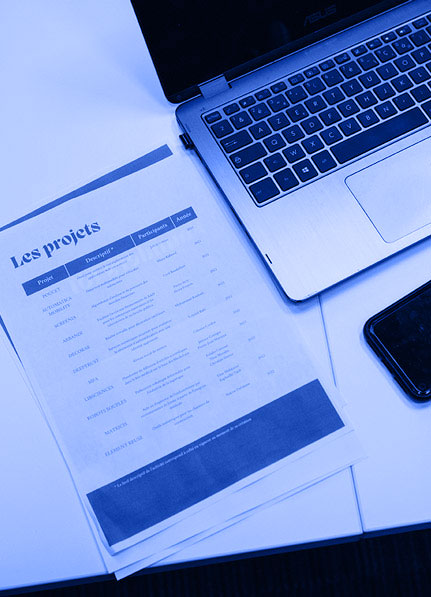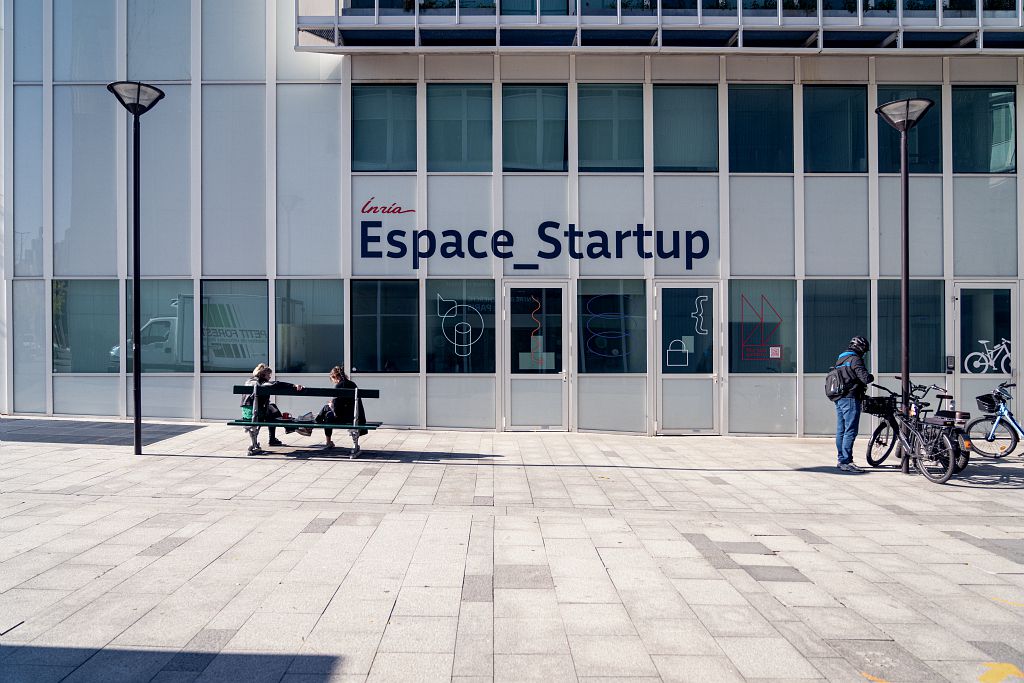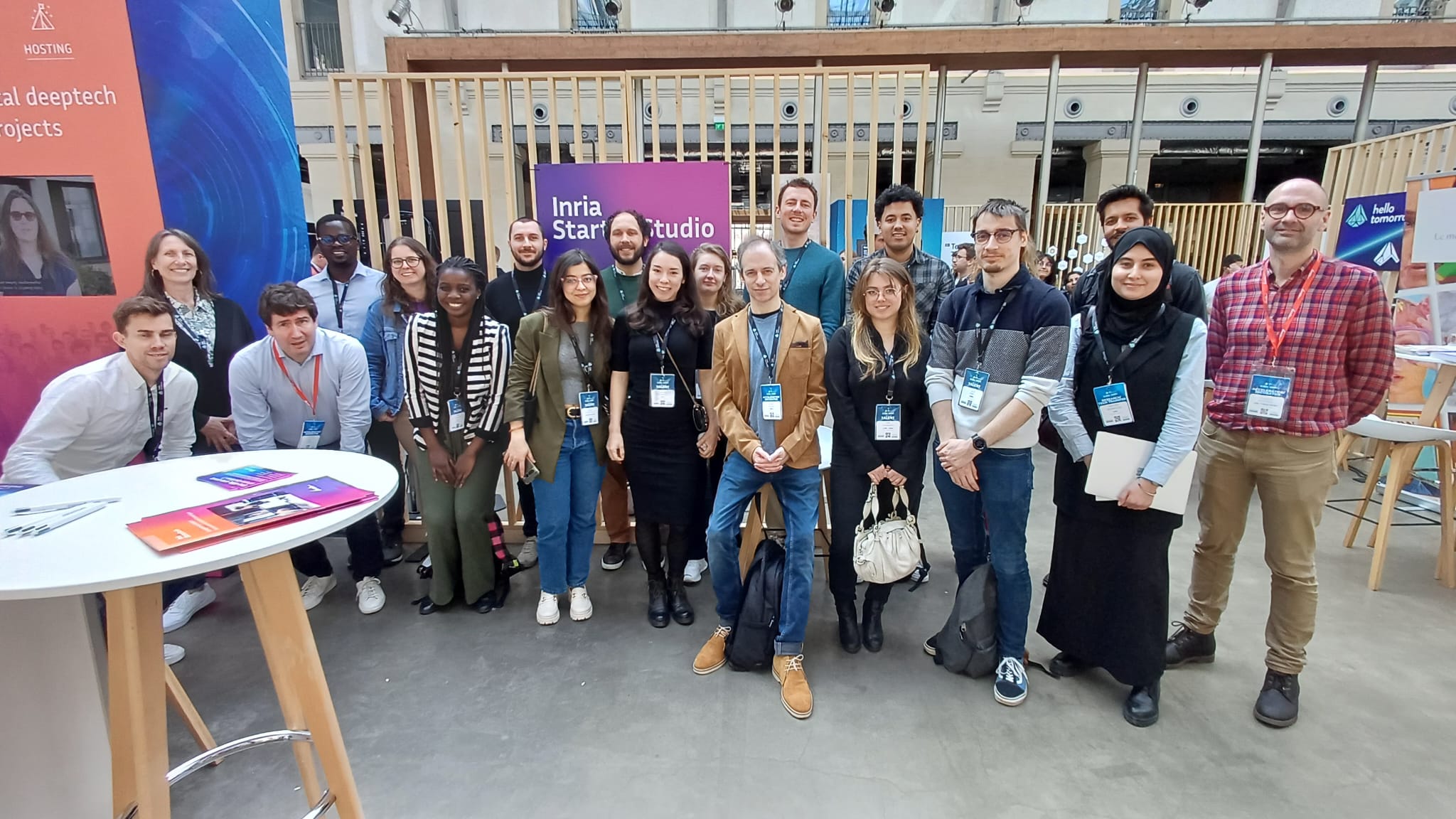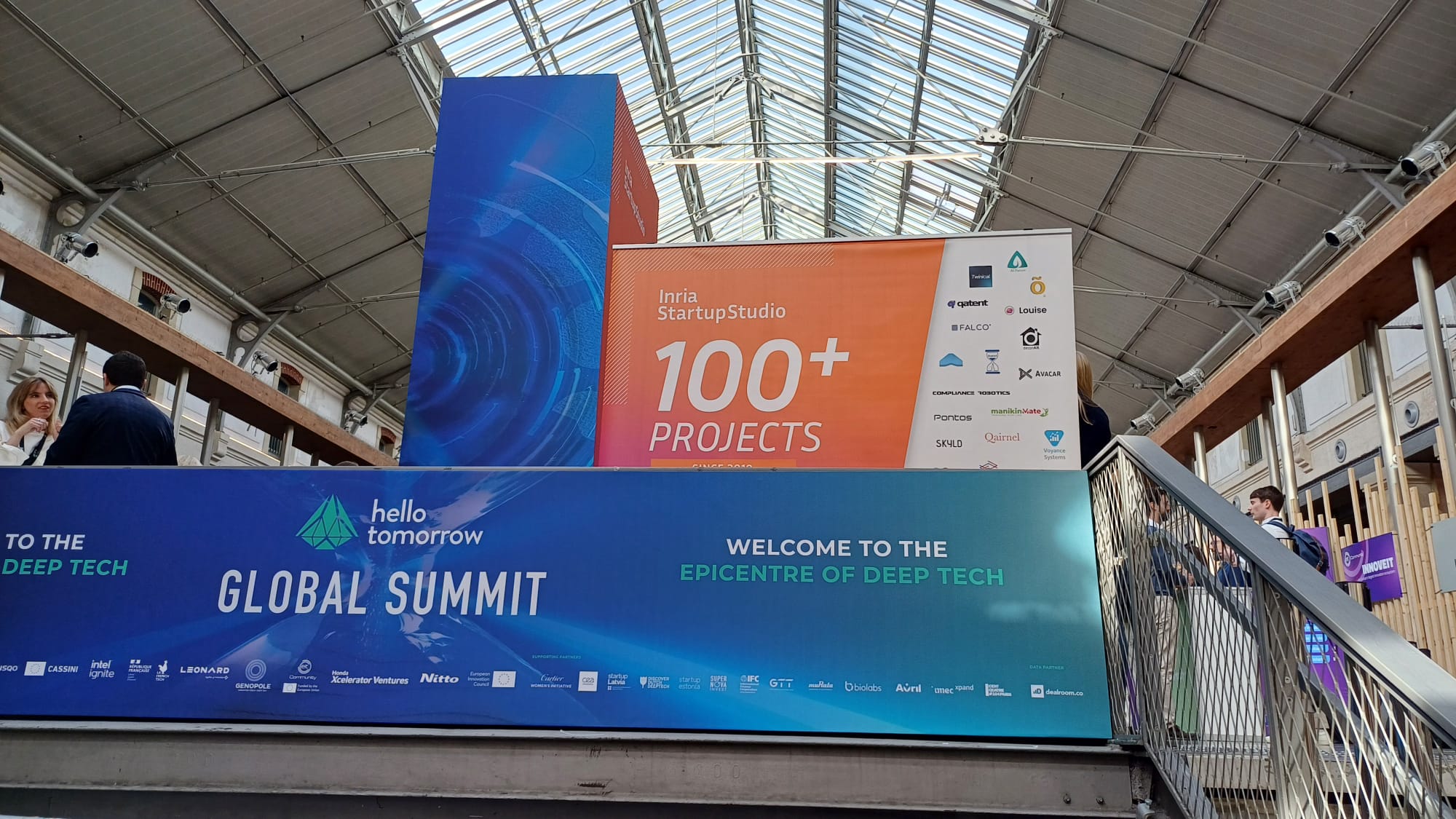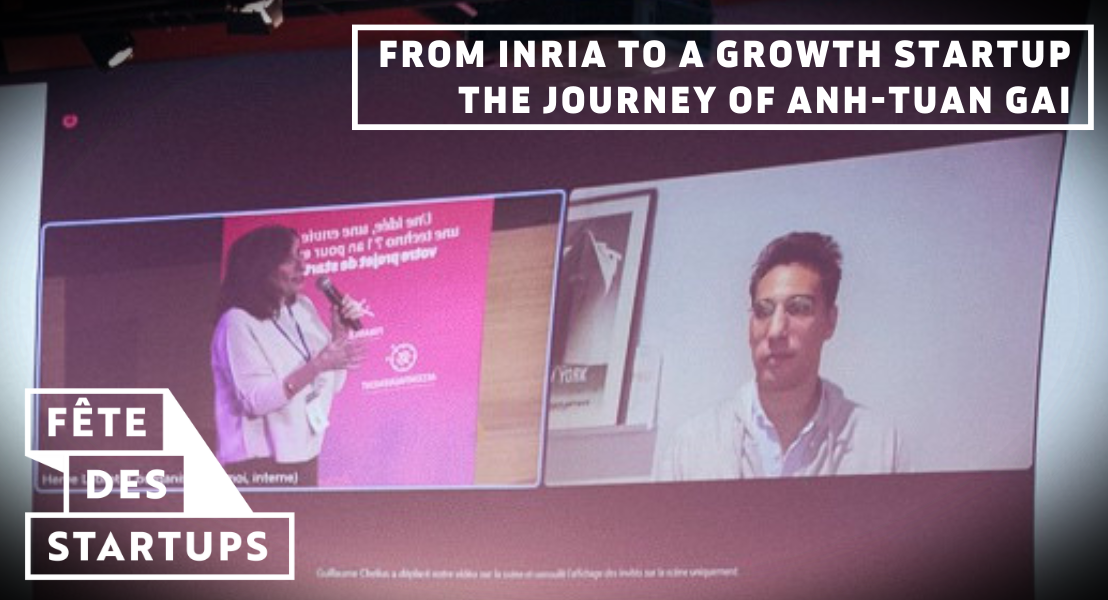
From Inria to a growth startup: Anh-Tuan Gai’s journey
The acquisition of new skills, the exhausting search for financing or even the perseverance necessary for the entrepreneur to face years of development, Anh-Tuan Gai, Inria doctoral student in 2006 and current CEO of Adagio.io knows them GOOD. He looked back on his journey during the Startups Festival, organized by Inria Startup Studio on November 30, 2023.
When he looks back on the last twenty years spent as a doctoral student and then entrepreneur, Anh-Tuan Gai, who today enjoys success with Adagio.io, a specialist in optimizing the advertising inventories of website publishers, sees weaving a common thread: “that of scalability. If I am testifying today, it is because, like many of you, I completed my thesis at Inria. It concerned algorithms making it possible to structure the data of millions of users. Today, I have finally succeeded in developing a scalable business, with a company structured to generate millions! It took me twenty years, and I think that’s also why Sophie Pellat and Hervé Lebret, the co-directors of Startup Studio, asked me to speak today: if my advice can help win a few years for project leaders who listen to us, that’s ideal!”
From the beginnings of trial and error…
Move & Play
From his thesis carried out at Inria with Laurent Viennot, with whom he founded Move & Play, whose ambition was to launch a mobile application for file synchronization between iPhone and Mac, he learned his first lessons: the importance of be “time to market”, and the need to change posture between research and entrepreneurship.
“In 2007, there was no SDK yet that made it easier for third-party developers to create applications. There were also few iPhone users. But we developed a peer-to-peer precursor to iCloud, at a time when it was not as easy to synchronize libraries of audio, photo and video files between different devices. The innovation was great, but there was no market yet. It was then necessary to move from a researcher’s posture, where we want to give substance to our ideas, to a more realistic and pragmatic posture. However, it allowed me to gain experience in managing a business and finding financing. In particular, I learned the importance of creating an MVP, for Minimum Viable Product, i.e. a basic offer that works and will allow you to generate your first income.”
Cleverscale
Driven by the need to find customers to renew its financing, Anh-Tuan Gai then reluctantly abandoned peer-to-peer to launch into the cloud through a new startup. From here comes a second lesson: the need to be agile to adapt to changes in your market and seize new opportunities. “Cleverscale aimed to manage multiple clouds in a unified way. Here again, we were ahead of the curve, since at the time the cloud was an innovation and there were still few competitors to Amazon Web Services. This pushed us to improve our commercial argument: increasing the number of cloud providers made it possible to limit costs, the risk of breakdowns, and above all to optimize website loading times, which makes it possible to increase page views and therefore the value of media advertising placements, or even the conversion rate of e-commerce sites.”
By exploring these new issues, Anh-Tuan Gai fails to develop Cleverscale, which will ultimately be placed in receivership. But he then identified the sector that would ultimately allow him to achieve success with Adagio.io: “First, I had the idea of creating Webperf, a company capable of measuring the impact of loading time pages on the media business and e-retailers. We quickly worked with great clients, such as Le Figaro or Priceminister. Our SaaS platform allowed us to diversify our financing, and not only depend on our business angels.
Webperf
“But we weren’t selling enough, or at least not expensive enough. Selling a monthly license for 500 euros to such players allowed us to make a living from our activity, but not to develop it. The other problem we had was based on our model: we made recommendations to improve our clients’ business. But if these are not applied, due to lack of time or resources, the perceived value of our tool diminishes.”
From there, Anh-Tuan Gai fully adopts an entrepreneurial posture. Listening to the needs of his clients, he identifies new issues, which are all opportunities to be seized: “I went back to see my investors proposing that we pivot our activity on the measurement and optimization of visibility advertising. But due to lack of tangible performance, I was unable to raise again and I decided to close Webperf to launch a new activity, Onfocus, which will become Adagio.io in 2018. You must not fall in love with your ideas if you want to move forward. Furthermore, I went looking for what I often lacked in the past: a partner with good commercial experience. In this case, it was Franck Durousset, the inventor of the first solution for measuring advertising visibility.”
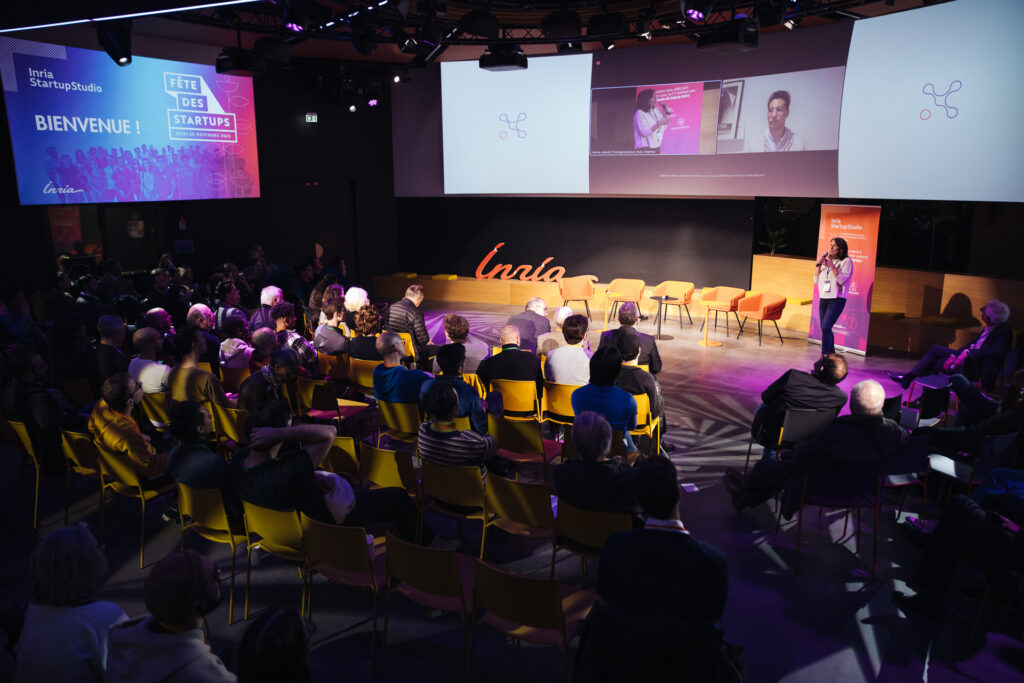
…to the creation of Adagio.io, a French adtech nugget
A performance-driven approach
Aware that companies rarely invest in tools without knowing the ROI, Onfocus will exercise its technology for optimizing the visibility of online advertisements through its own SSP, a platform for selling advertising space by auction in real time. .
From there, Anh-Tuan Gai also comes up against the inertia specific to each sector: “We wanted to change the way of marketing online advertising, by moving from the number of displays of an advertisement, which is an operation close to paper advertising, with display duration, which is inspired by radio and television practices. But it is difficult to change the habits and ways of working of an entire sector. However, this has led us to develop innovations such as predicting the visibility of an advertising location, which allows us to improve the way we sell it. We then realized that our tools responded to those used by buyers of advertising locations! We were on the side of the Davids, the small publishers, facing the Goliaths, who are the big advertisers and the big advertising platforms.”
Enough to call into question its conception of its own market: “We have developed more and more solutions allowing publishers to be better remunerated, thus enriching our platform. Instead of a classic SaaS growth model, which is based on the number of users, which is quite linear and reassures the investor, we have developed a performance model. The more revenue we generate with the advertising inventories entrusted to us, the more we get paid, the more we also attract new publishers who entrust us with their inventories…”
After fundraising in 2018, Onfocus changed its name to Adagio.io, which today employs 30 people and generates nearly 60 million euros in turnover, for an EBITDA of 4 million euros.
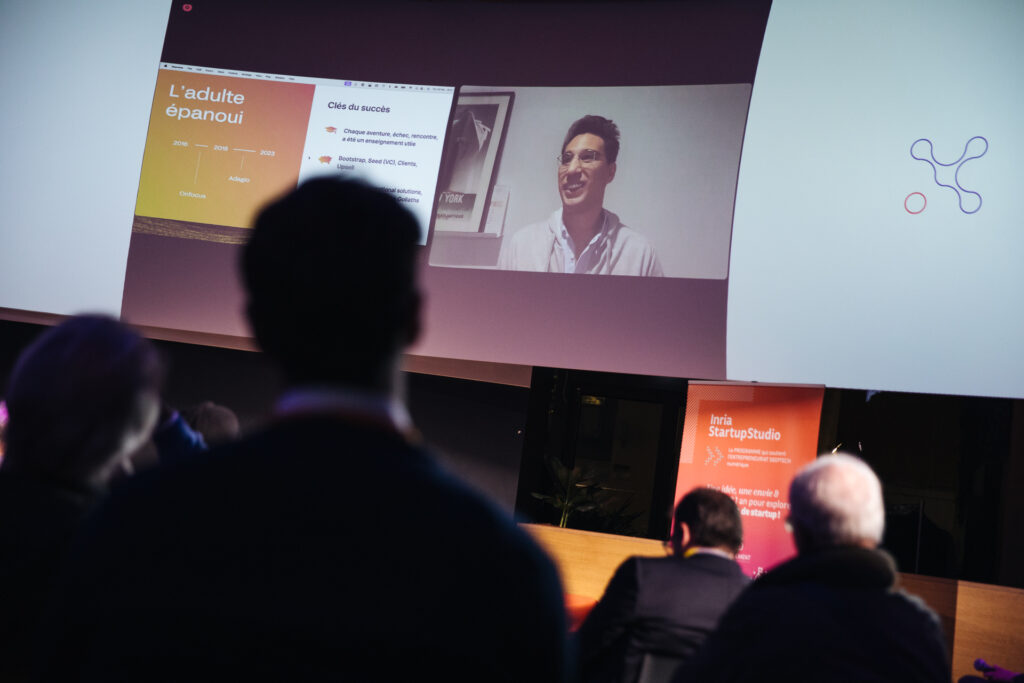
The path to success
A success which allows Anh-Tuan Gai to share other observations with the participants of the Startup Festival: “Throughout my entrepreneurial adventure, I have tested different means of financing myself, from grants to funds, to name a few. by business angels, until finding the best model: that of bootstrapping, which consists of developing an MVP to generate your first income yourself and not depend on anyone. At the beginning, we didn’t even have a product, and we collected data to create reports and studies that we sold individually. This allowed us to meet our first customers, and to use their feedback to create and improve our offer.
Another thing: if you have to do fundraising, try to do as little as possible to limit your dilution within the company. Finally, don’t invest your own money! This is the key to resilience, because it allows you to exit or pivot from a project more easily, without undermining your means to recreate again. And to reassure myself about my ability to bounce back, I used to respond to requests from headhunters, in order to be aware of my value on the market.”
But as he says himself, it’s difficult to go back after having tasted entrepreneurship. Today, Anh-Tuan Gai hopes to successfully “exit” from Adagio.io, that is to say the resale of his company, in order to be able to devote himself to transmission to other researchers and entrepreneurs. A way of giving back what he was able to benefit from in his early days, perhaps even by launching his own startup studio…
Clément Fages
Publication date: 01/03/2024
Want to get started ?
